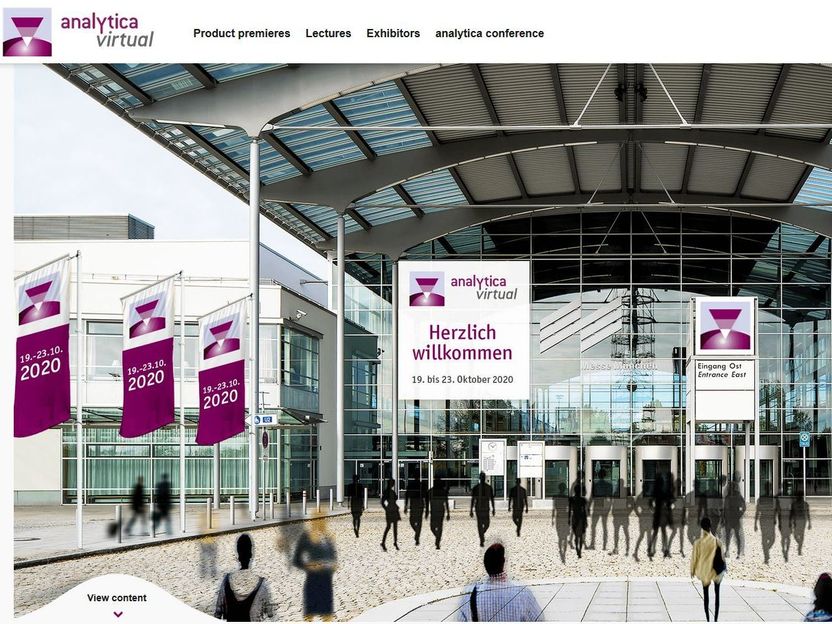CORAT antibody recognizes aggressive “delta” variant
COR-101 binds and inhibits all B.1.617 SARS-CoV-2 variants
CORAT Therapeutics GmbH announced that its COR-101 antibody, currently in Phase Ib/II clinical trials against SARS-CoV-2, recognizes the latest aggressive “delta“ variant B.1.617.2. "COR-101 is under evaluation in hospitalized Covid-19 patients with moderate to severe symptoms. In this affected patient group, many of the currently approved antibodies cannot be applied," commented Dr. Andreas Herrmann, CEO of CORAT. Dr. Herrmann is confident about the use of COR-101 on the latest variants of SARS-CoV-2: "Our laboratory tests indicate that COR-101 recognizes the particularly aggressive new „delta” variant B.1.617.2, which is rapidly replacing the “alpha” variant B.1.1.7".

Symbolic image
pixabay.com
On May 10th, the WHO classified the B.1.617.2 SARS-CoV-2 variants, first detected in India, as "of concern". According to current data from the European Centre for Disease Prevention and Control (ECDC) the “delta” variant B.1.617.2 has replaced previous SARS-CoV-2 variants, including the "alpha" variant B.1.1.7, currently prevalent in Germany. COVID-19 vaccines currently in use have different efficacies against the newly emerging variants. Also, while vaccines can protect healthy people, they cannot cure people already suffering from COVID-19; moreover, not everyone responds to vaccination. For these patient groups, CORAT Therapeutics GmbH is developing a drug that has an effect against SARS-CoV-2 directly.
Currently, three B.1.617 variants are described. According to ECDC analysis, combinations of these mutations likely increase transmissibility and decrease neutralization by convalescent plasma and previous specific therapeutic antibodies. This can explain the sharp increase in the number of cases in India in the recent weeks. In England, the "delta" variant is rapidly replacing the ”alpha” variant and led to a sharp increase of the incidence despite more than 80% of the people already obtained vaccine doses. In Germany, the "delta" variant shows a pronounced increase, too, according to reports from the Robert Koch Institute.
The treatment of COVID-19 patients with COR-101 is currently underway at five clinical sites in Germany – including Tuebingen, Dresden, Stuttgart, Braunschweig, and Leipzig. Dr. Andreas Herrmann, Managing Director of CORAT, commented: "After the first observations, we are confident to complete our Phase Ib study successfully in July 2021. With regards to the "delta" variant, which is spreading at a concerning rate, we are pleased to announce that COR-101 showed strong binding to coronavirus spike proteins with all described B.1.617 variants in laboratory tests. Therefore, although it has not been possible to test its activity against the "delta" variant in the clinic yet, we are very confident that COR-101 will be effective in patients also."
Other news from the department research and development
Most read news
More news from our other portals
Something is happening in the life science industry ...
This is what true pioneering spirit looks like: Plenty of innovative start-ups are bringing fresh ideas, lifeblood and entrepreneurial spirit to change tomorrow's world for the better. Immerse yourself in the world of these young companies and take the opportunity to get in touch with the founders.
See the theme worlds for related content
Topic world Antibodies
Antibodies are specialized molecules of our immune system that can specifically recognize and neutralize pathogens or foreign substances. Antibody research in biotech and pharma has recognized this natural defense potential and is working intensively to make it therapeutically useful. From monoclonal antibodies used against cancer or autoimmune diseases to antibody-drug conjugates that specifically transport drugs to disease cells - the possibilities are enormous

Topic world Antibodies
Antibodies are specialized molecules of our immune system that can specifically recognize and neutralize pathogens or foreign substances. Antibody research in biotech and pharma has recognized this natural defense potential and is working intensively to make it therapeutically useful. From monoclonal antibodies used against cancer or autoimmune diseases to antibody-drug conjugates that specifically transport drugs to disease cells - the possibilities are enormous






















































